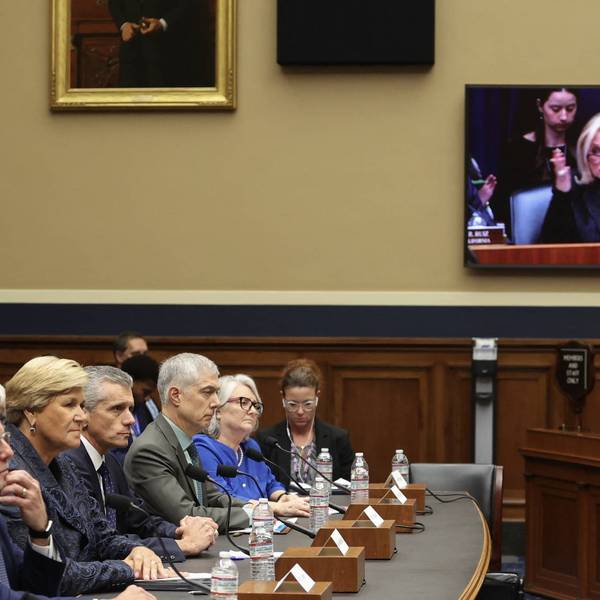Arguing that piecemeal reforms to America's for-profit healthcare system will not be sufficient to address the needs of millions who are suffering due to lack of insurance and soaring drug costs, Sen. Bernie Sanders said Tuesday that the U.S. must "get rid of the insurance companies" and move to Medicare for All.
Asked by MSNBC's Chris Hayes why he favors single-payer over the incremental Medicare buy-in plans introduced by congressional Democrats in recent weeks--such as the so-called "Medicare for America" bill--Sanders said, "Because ultimately we have to recognize that the current system is incredibly dysfunctional and wasteful."
"Its goal is to make profits for the insurance companies and the drug companies," said the independent senator from Vermont. "You are not going to be able, in the long run, to have cost-effective, universal healthcare unless you change the system, unless you get rid of the insurance companies, unless you stand up to the greed of the drug companies and lower prescription drug costs."
"That's the only way that you can provide quality care to all people," Sanders continued. "All people people get it, regardless of their income. It is publicly funded. That is the most cost-effective way to provide healthcare to all."
After the Republican National Committee's (RNC) research team posted a clip of Sanders' interview on Twitter, apparently believing it would somehow harm him, the senator didn't back down from his remarks.
"You're damn right," Sanders tweeted.
Sanders' clear call for the elimination of private insurance companies comes as incremental plans are gaining appeal among some congressional Democrats and presidential candidates.
Former Texas Rep. Beto O'Rourke, a 2020 presidential contender, has expressed support for "Medicare for America," which would leave employer-provided private insurance and premiums intact.
Writing for Common Dreams on Monday, Michael Lighty--former director of public policy for the California Nurses Association and a founding fellow at the Sanders Institute, started by Sanders' wife and son--argued that Medicare for America does not adequately address soaring out-of-pocket costs because it fails to confront the private insurance industry's profit-driven business model.
"Rather than contort policy into some hybrid, multi-payer regulatory scheme that generates complexity, fragmentation and waste, as it enshrines profit-making and high out of pocket costs, let's stop the care denials and the insurance company dictates to doctors and patients," Lighty wrote. "Medicare for All represents the best M4A way: lead and be swift."
"Yes, your premiums are gone, your co-pay to see the doctor is eliminated, you don't have to worry about your deductible or wait for insurance company approval to get that test," he concluded. "Very quickly, peace of mind will overwhelm that forgotten desire to keep your private insurance."




